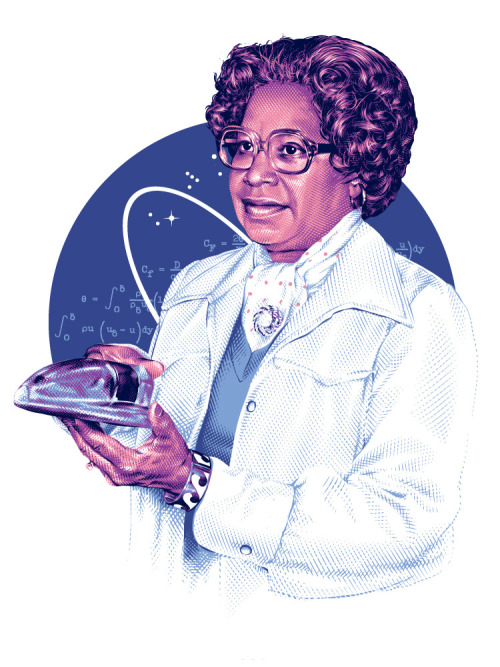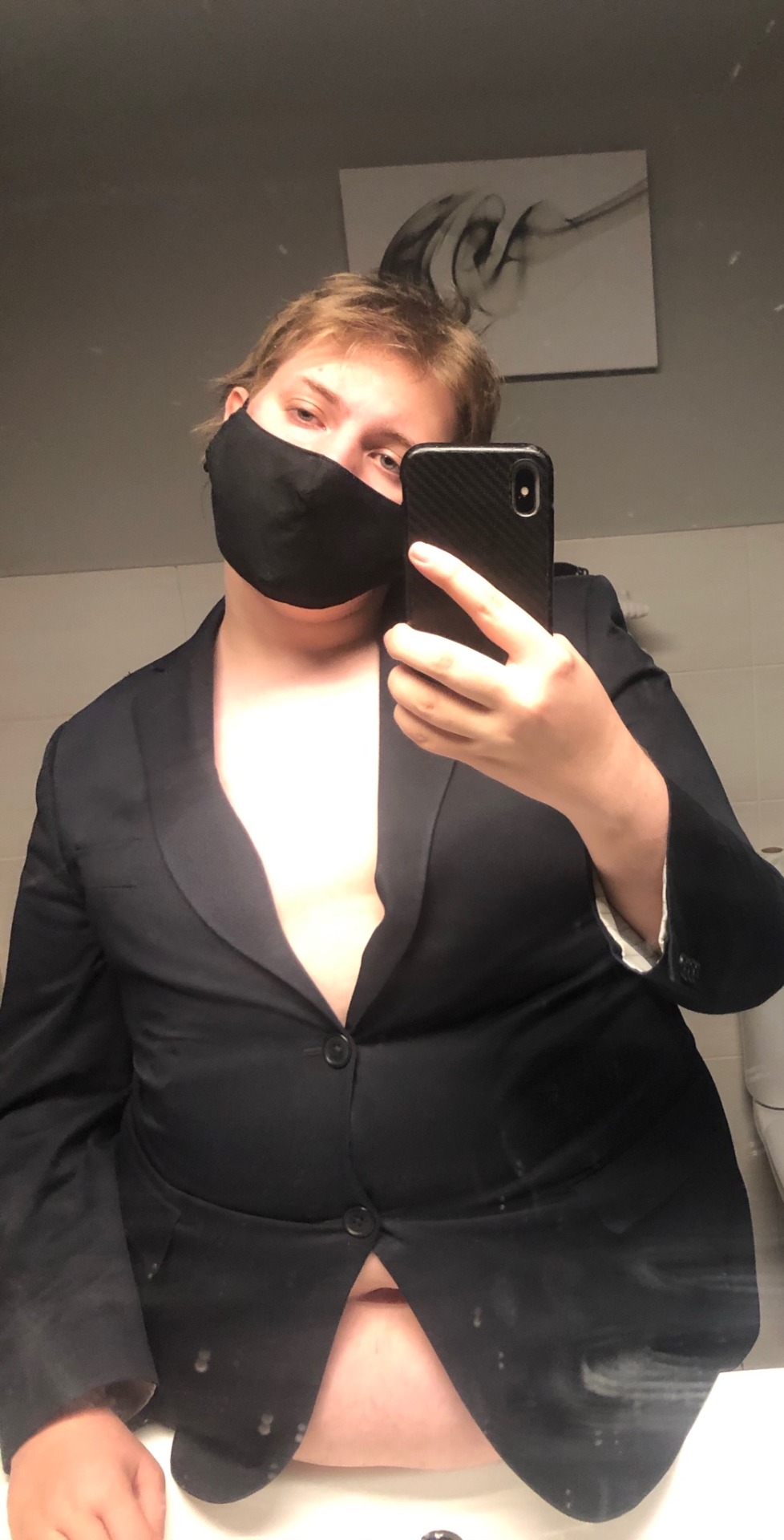Dive into your creative stream
Bhm - Blog Posts
Black history month art for y'all.
This goes for
Black LGBTQIA ( my trans brothers my trans sisters too I ain't forgetting y'all)
Black artists
BLM ally's
People in general whether what race celebrating this month with us.
Black singers
Black writers
Black actors
Black furries
Black anime fans
Everybody!!
I'm very happy this month.


Mary W Jackson by Tracie Ching
April 9, 1921 – February 11, 2005)
Mary Jackson was an American mathematician and aerospace engineer at the National Advisory Committee for Aeronautics, which in 1958 was succeeded by the National Aeronautics and Space Administration. She worked at Langley Research Center in Hampton, Virginia, for most of her career. She started out in the computing unit at the segregated West Area Computing division in 1951. She took advanced engineering classes and, in 1958, became NASA’s first black female engineer.
After 34 years at NASA, Jackson had earned the most senior engineering title available. She realized she could not earn further promotions without becoming a supervisor. She accepted a demotion to become a manager of both the Federal Women’s Program, in the NASA Office of Equal Opportunity Programs and of the Affirmative Action Program. In this role, she worked to influence the hiring and promotion of women in NASA’s science, engineering, and mathematics careers.
Jackson’s story features in the 2016 non-fiction book Hidden Figures: The American Dream and the Untold Story of the Black Women Who Helped Win the Space Race. She is one of the three protagonists in Hidden Figures, the film adaptation released the same year.
In 2019, Jackson was posthumously awarded the Congressional Gold Medal.[2] In 2021, the Washington, D.C. headquarters of NASA was renamed the Mary W. Jackson NASA Headquarters.
“For Mary Jackson, life was a long process of raising one’s expectations.” - Author: Margot Lee Shetterly
Who Was Mary W. Jackson?

On June 24, 2020, NASA announced the agency’s headquarters building in Washington, D.C., was to be named after Mary W. Jackson, the first African American female engineer at NASA.
Jackson’s story — along with those of her colleagues Katherine Johnson, Dorothy Vaughan, and Christine Darden — was popularized with the release of the “Hidden Figures” movie, based on Margot Lee Shetterly’s book by the same name.
Today, as the accomplishments of these women are brought to light, we celebrate them as Modern Figures — hidden no longer. Despite their recent recognition, we cannot forget the challenges that women and BIPOC faced and continue to face in the STEM fields.

Background
Jackson showed talent for math and science at an early age. She was born in 1921 in Hampton, Virginia, and attended the all-Black George P. Phenix Training School where she graduated with honors. She graduated from Hampton Institute (now Hampton University) in 1942 with a bachelor of science degree in both mathematics and physical sciences.
Jackson worked several jobs before arriving at the National Advisory Committee on Aeronautics (NACA), the precursor organization to NASA. She was a teacher, a receptionist, and a bookkeeper — in addition to becoming a mother — before accepting a position with the NACA Langley Aeronautical Laboratory’s segregated West Area Computers in 1951, where her supervisor was Dorothy Vaughan.

Accomplishments
After two years in West Computing, Jackson was offered a computing position to work in the 4-foot by 4-foot Supersonic Pressure Tunnel. She was also encouraged to enter a training program that would put her on track to become an engineer — however, she needed special permission from the City of Hampton to take classes in math and physics at then-segregated Hampton High School.
She completed the courses, earned the promotion, and in 1958 became NASA’s first African-American female engineer. That same year, she co-authored her first report, “Effects of Nose Angle and Mach Number on Transition on Cones at Supersonic Speeds.” By 1975, she had authored or co-authored 12 NACA and NASA technical publications — most focused on the behavior of the boundary layer of air around an airplane.

Legacy
Jackson eventually became frustrated with the lack of management opportunities for women in her field. In 1979, she left engineering to become NASA Langley’s Federal Women’s Program Manager to increase the hiring and promotion of NASA’s female mathematicians, engineers, and scientists.
Not only was she devoted to her career, Jackson was also committed to the advancement of her community. In the 1970s, she helped the students in the Hampton King Street Community Center build their own wind tunnel and run experiments. She and her husband Levi took in young professionals in need of guidance. She was also a Girl Scout troop leader for more than three decades.
Jackson retired from Langley in 1985. Never accepting the status quo, she dedicated her life to breaking barriers for minorities in her field. Her legacy reminds us that inclusion and diversity are needed to live up to NASA’s core values of teamwork and excellence.

Make sure to follow us on Tumblr for your regular dose of space: http://nasa.tumblr.com.
Who Was Mary W. Jackson?

On June 24, 2020, NASA announced the agency’s headquarters building in Washington, D.C., was to be named after Mary W. Jackson, the first African American female engineer at NASA.
Jackson’s story — along with those of her colleagues Katherine Johnson, Dorothy Vaughan, and Christine Darden — was popularized with the release of the “Hidden Figures” movie, based on Margot Lee Shetterly’s book by the same name.
Today, as the accomplishments of these women are brought to light, we celebrate them as Modern Figures — hidden no longer. Despite their recent recognition, we cannot forget the challenges that women and BIPOC faced and continue to face in the STEM fields.

Background
Jackson showed talent for math and science at an early age. She was born in 1921 in Hampton, Virginia, and attended the all-Black George P. Phenix Training School where she graduated with honors. She graduated from Hampton Institute (now Hampton University) in 1942 with a bachelor of science degree in both mathematics and physical sciences.
Jackson worked several jobs before arriving at the National Advisory Committee on Aeronautics (NACA), the precursor organization to NASA. She was a teacher, a receptionist, and a bookkeeper — in addition to becoming a mother — before accepting a position with the NACA Langley Aeronautical Laboratory’s segregated West Area Computers in 1951, where her supervisor was Dorothy Vaughan.

Accomplishments
After two years in West Computing, Jackson was offered a computing position to work in the 4-foot by 4-foot Supersonic Pressure Tunnel. She was also encouraged to enter a training program that would put her on track to become an engineer — however, she needed special permission from the City of Hampton to take classes in math and physics at then-segregated Hampton High School.
She completed the courses, earned the promotion, and in 1958 became NASA’s first African-American female engineer. That same year, she co-authored her first report, “Effects of Nose Angle and Mach Number on Transition on Cones at Supersonic Speeds.” By 1975, she had authored or co-authored 12 NACA and NASA technical publications — most focused on the behavior of the boundary layer of air around an airplane.

Legacy
Jackson eventually became frustrated with the lack of management opportunities for women in her field. In 1979, she left engineering to become NASA Langley’s Federal Women’s Program Manager to increase the hiring and promotion of NASA’s female mathematicians, engineers, and scientists.
Not only was she devoted to her career, Jackson was also committed to the advancement of her community. In the 1970s, she helped the students in the Hampton King Street Community Center build their own wind tunnel and run experiments. She and her husband Levi took in young professionals in need of guidance. She was also a Girl Scout troop leader for more than three decades.
Jackson retired from Langley in 1985. Never accepting the status quo, she dedicated her life to breaking barriers for minorities in her field. Her legacy reminds us that inclusion and diversity are needed to live up to NASA’s core values of teamwork and excellence.

Make sure to follow us on Tumblr for your regular dose of space: http://nasa.tumblr.com.
Wouldn’t mind a thicc brown boi like him for a huge, fluffy sized BF!!!!!!!!😳😍🥰🤤☺










Good GOD!!!! 😦😍🤤 To cuddle THAT!?!? 😶🤚🙏
THICC 👀
Piggy turning into a massive fat HOG!!!!🤤😋

Want to feed the greed? Shoot me a message
😳😍🤤
I am the moob handler
https://onlyfans.com/femalefeederheaven
LOVE me some thicc bois!!!!🤤😛😝





Tried some formalwear on...shame I couldn’t get the xxl shirt to close :(
Dats a gud ol' piggy!😝😈
My boyfriend fed me like the pig I am! 🐷
😛🤤☺
Wide Wednesdays are for showing off Fat Boy humps
Cute piggy!😋

just want a boy to love who will love me in return
I want a hog this big to be ready for breeding like this!!!!!💪😝😈
Onlyfans.com/SuperChub23
I'd FEED and FUCK this massive HOG daily!!!!!🤤😛😈
